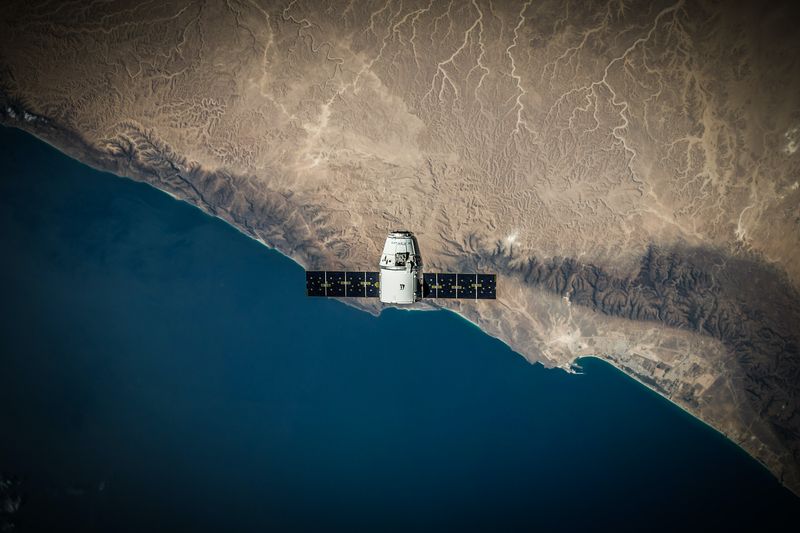The Egyptian Space Agency (EgSA) successfully launched its experimental satellite, NExSat-1, using China’s Jielong-3 orbital launch vehicle, on Saturday 3 February 2024. NExSat-1, a microsatellite weighing 67 kg, received initial signals after the launch, confirming its functionality.
The satellite, developed in collaboration with Germany’s Berlin Space Technologies (BST), is designed for remote sensing.
The Egyptian Space Agency designed the space mission for the satellite; it specified the technical requirements for its subsystems, collaborating with the German side in the satellite’s design, creating a complete Egyptian version of the satellite’s software, assembling, integrating, and testing the satellite, coordinating the entire launch process, and designing and implementing a complete control station in Egypt.
Sherif Sedky, EgSA’s CEO, highlighted the importance of NExSat-1 in advancing micro-satellite technology in Egypt and Africa. The Egyptian side also managed the entire launch process, established a control station in Egypt for communication and data retrieval, and collaborated with the German team on design and technical aspects.
The satellite’s electro-optical imaging payload offers a multispectral resolution of 5.7 meters, showcasing its ability to capture high-detail imagery.
According to Sedky, this achievement is a significant step in localizing design technology and software for microsatellites, contributing to Egypt’s sustainable development goals and providing economic benefits
Egypt was the first Arab country to launch a telecommunications satellite into space when it launched the telecommunication satellite known as NileSat 101 in 1998. This was followed by the successful launch of NileSat 102 in 2000, a satellite that was pivotal in the widespread distribution of satellite TV channels.
The country introduced EgyptSat 1 in 2007, marking its inaugural remote-sensing satellite. This accomplishment resulted from a collaboration between Egypt’s National Authority for Remote Sensing and Space Sciences (NARSS) and Ukraine’s Yuzhnoye State Design Office
In 2019, Egypt overcame technical challenges to launch the Tiba 1 telecommunications satellite successfully, following two postponements.
June 2022 witnessed another notable achievement as Egypt launched Nilesat 301, a versatile communications satellite, using a SpaceX Falcon 9 rocket. The satellite aims to provide expanded broadband internet services covering Egypt.
In 2023 Egypt launched a total of three remote-sensing satellites. The first is the Horus 1 satellite, which was launched in February 2023 from northwest China’s base. This satellite is equipped with a multi-purpose high-quality camera for remote sensing. Egypt saw the launch of its third remote-sensing satellite, Horus 2 in March 2023 from China as well. The objective is to enhance the utilization of Egypt’s natural resources and stimulate exports. Finally, in December 2023, Egypt launched its fifth remote-sensing satellite MisrSat-2
NExSat-1 is Egypt’s latest addition to its roster of remote sensing satellites, representing Africa’s first satellite launch in 2024, which brings the total number of African satellites to 59.






Comments (2)
[…] The Egyptian Space Agency (EgSA) successfully launched its experimental satellite, NExSat-1, using China’s Jielong-3 orbital launch vehicle, on Saturday 3 February 2024. NExSat-1, a microsatellite weighing 67 kg, received initial signals after the launch, confirming its functionality. The satellite, developed in collaboration with Germany’s Berlin Space Technologies (BST…Read More […]
[…] post Egypt Successfully Launches NExSat-1 Remote-Sensing Satellite to Orbit first appeared on Egyptian […]